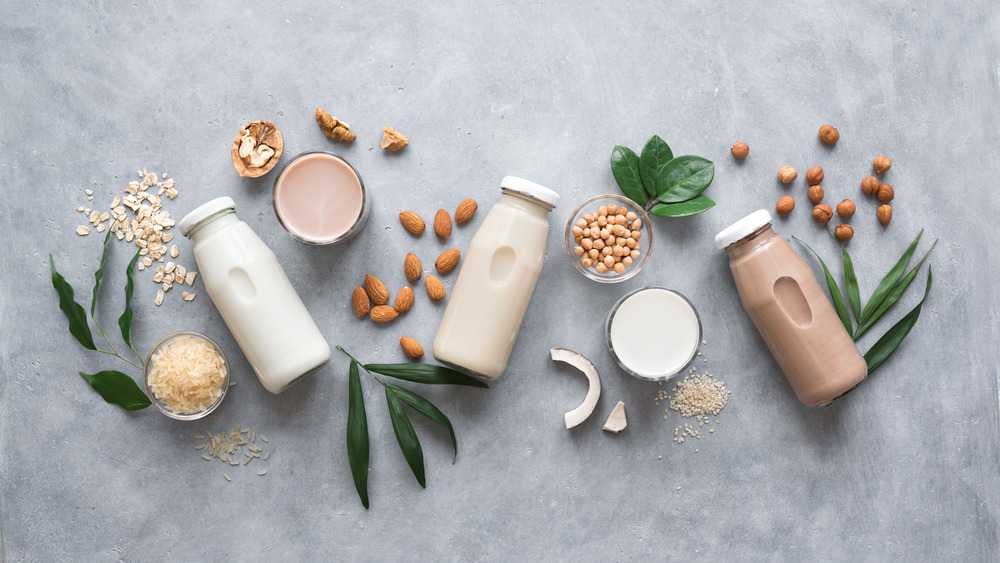Starbucks Has Great News For Dairy-Free Customers
If you're vegan or lactose intolerant, love Starbucks, and dream of coffee and lattes made with oat milk, have we got news for you. In a lengthy corporate blog post covering a variety of Starbucks news (including the announcement of a new Chair for its Board of Directors, plans to open several thousand new locations worldwide by 2030, and improvements to its Starbucks rewards digital offers) Starbucks says it's now planning to offer oatmilk in all stores across the U.S. starting this spring. That should please oat milk fans in the U.S., who might have felt it unfair that Starbucks has actually been offering that particular dairy-free alternative in Europe since 2018 (via Starbucks).
While you could argue that Oatly brand oatmilk has been available in U.S. Starbucks locations since March 2019, the dairy-free option has really only been offered at select Starbucks Reserve locations, according to Today. Oatly oatmilk joins the coffee chain's other non-dairy options which include almondmilk, coconutmilk, and soymilk.
Starbucks wants to invest more in non-dairy milks
Dairy-free milks are becoming more popular because they are seen as being healthier than cows milk by some. Even so, Today points out that non-dairy milks generally don't contain as much protein, and some varieties have more sugar than others. The outlet gives the example of a flat white from Starbucks which can have 220 calories, 11 grams of fat, 18 grams of carbs, and 12 grams of protein when made with 2 percent milk. An almondmilk flat white from the chain, on the other hand, can have 170 calories, 5 grams of fat, 30 grams of carbs, and only 3 grams of protein.
But Starbucks says it has a good reason to invest in non-dairy milks. In that same company note, it says it has seen its cold beverage offerings grow by almost 45 percent over the last four years, and has promised to continue innovating within the non-dairy space. Starbucks says it began offering plant-based milks in 1997 with the debut of soymilk, followed by coconutmilk in 2015 and almondmilk in 2016.

